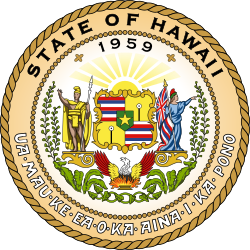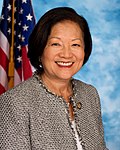| |||||||||||||||||||||||||||||||
All 2 Hawaii seats to the United States House of Representatives | |||||||||||||||||||||||||||||||
|---|---|---|---|---|---|---|---|---|---|---|---|---|---|---|---|---|---|---|---|---|---|---|---|---|---|---|---|---|---|---|---|
| |||||||||||||||||||||||||||||||
 County results Democratic: 50–60% 70–80% | |||||||||||||||||||||||||||||||
| Elections in Hawaii |
|---|
 |
The 2010 congressional elections in Hawaii was held on November 2, 2010, to determine who was to represent the state of Hawaii in the United States House of Representatives for the 112th Congress from January 2011, until their terms of office expire in January 2013.
Contents
- Overview
- By district
- District 1
- Campaign
- Polling
- Results
- District 2
- Campaign 2
- Results 2
- References
- External links
Hawaii has two seats in the House, apportioned according to the 2000 United States census. Representatives are elected for two-year terms. The election coincided with the 2010 gubernatorial election.





